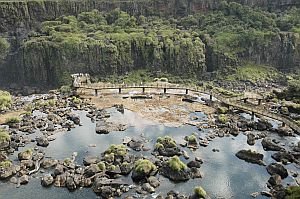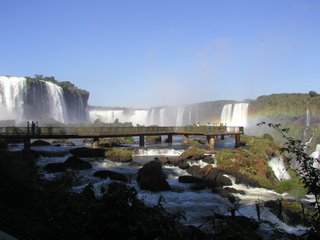Ray Ison, Professor in Systems at the UK Open University since 1994, is a member of the Applied Systems Thinking in Practice Group. From 2008-15 he also developed and ran the Systemic Governance Research Program at Monash University, Melbourne. In this blog he reflects on contemporary issues from a systemic perspective.
Wednesday, August 02, 2006
Having lived and worked in the UK for 12 years I return with dual nationality - British and Australian, something the Australian government did not allow till 2002. The recent plight of Lebanese and Israeli Australians has ignited a debate about who is really Australian and the desirability or not of allowing dual nationality. A feature article in the Australian Finanacial Review, more balanced than the Courier Mail article (but not available electronically) explores the issues and makes, in my view, strong arguments, for maintaining dual nationality arrangements. Surprisingly the government has no idea how many Australian citizens have dual nationality. If anything, based on my experience to date, I would say that Government does not go far enough in encouraging this arrangement so as to facilitate an outward-looking, globally mobile citizenry (whether virtually or physically). Certainly tax, medical care, superannuation and other arrangements seem unduly complex at this stage, not that British banks - or at least mine - seem any better. Mine cannot deal with my Australian account number for internet transfers because they are one digit short in their account code field!!.

Experiencing global warming impacts
In May 2005 I was fortunate to make a visit to the Iguazu Falls on the border between Brasil and Argentina. Even at that time the river was low but the falls were spectacular. Compare the photos taken of the same area then (above) and now (below - source: Aurea Cunha/Gazeta do Povo/AE).
Climate change impact surely?
Yet in this country (Oz) the current (and long-term) Federal government are in denial presenting a policy that is perhaps best described as 'environmental terrorism'. In this case I follow the definition of terrorism as 'systematic intimidation as a method of governing or securing political or other ends'. One only has to read the paper by Clive Hamilton (The Dirty Politics of Climate Change) to see how this is enacted. The net effect is to protect vested interests (promote first-order change) at the expense of innovation and change, particularly the emergence of new insitutions and economic activity that will address the systemic basis of climate change at the same time as creating demand pull for new technologies and institutional arrangements (second-order change).
Elizabeth Farrelly, in a well crafted article, entitled 'Eyes wide shut on the issue of the century' provides some compelling arguments.
Some of the states are doing better.
Life in Oz is tough! Muesli without banana is like Heloise without Abelard. What creates this situation? Cyclone destruction of almost the whole of the local banana crop along with quarantine restrictions on imports. Prices are so high they are taking some of the blame for the rise in inflation that is likely to see home interest rates rise tomorrow to over 7%. At dinner the other night we were given bananas as a special treat!!
